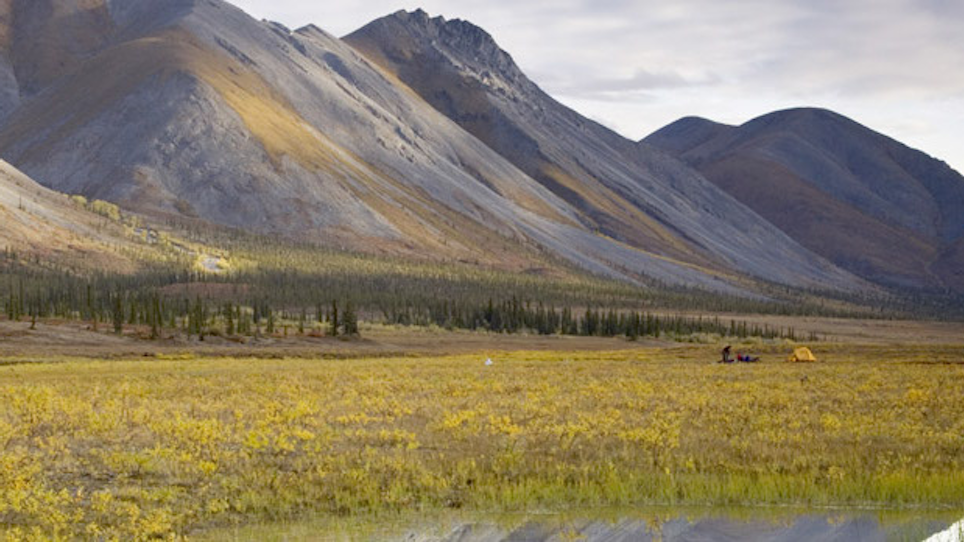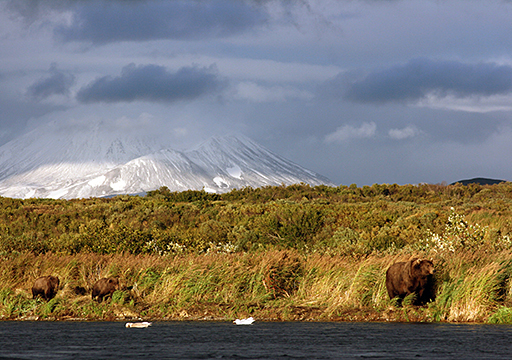The U.S. House and Senate have passed House Joint Resolution 69 (H.J. Res 69), which allows Alaska to once again make decisions about the wildlife management of apex predators in accordance with state goals and traditions. Earlier this week, the Senate passed House Joint Resolution 69, the Sportsmen’s Alliance reports. The resolution now only awaits President Donald Trump’s signature.
The rule change follows a protection added late in the Obama administration’s last term. With protection soon lifted, Alaskan refuge administrators and biologists will again oversee wildlife management on National Widlife Refuge System lands. This oversight includes hunting regulations such as setting hunting season dates, bag limits and methods of take.
“(This) vote affirms what we all know to be true and in the best interest of Alaska, its wildlife and its abundant and pristine ecosystems,” Sportsmen’s Alliance President and CEO Evan Heusinkveld said in a press release. “The best wildlife management takes place at the local level with boots-on-the-ground biologists making decisions backed by science and free of red tape.”
A Multi-Year Battle
The Washington Post reports the struggle between the Alaska Department of Fish and Game and U.S. Fish and Wildlife Service really hit in 2013. Previously, the two groups negotiated annually on how to establish hunting and fishing regulations for the multi-million acres of national wildlife refuges. However, in 2013, the Fish and Wildlife Service proposed rules and instructed Alaska’s state wildlife agency to write their own regulations, The Post reports.
“It was the state of Alaska that broke with this tradition,” former USFWS director Dan Ashe told The Post.
The agency, under federal law, is supposed to manage “for wildlife first” on its refuges, Ashe told the newspaper. He continued, “We did everything we could to try to resolve the controversy, but the basic issue is what’s your basic philosophy with regard to the management of predators. And these are national wildlife refuges.”
Senator Dan Sullivan (R-Alaska), one of two Senators to shepherd the change to the Senate, responded, telling The Post, “many hunt for survival, both personal and cultural. Alaskans have been able to maintain these strong and life-sustaining traditions through a rigorous scientific process that allows for public participation and ensures we manage our fish and game for sustainability, as required by the Alaska Constitution.”
The Cause For Change
H.J. Res 69 was introduced by Alaska Rep. Don Young. It passed the House of Representatives by a 225-to-193 vote. Senators Lisa Murkowski and Sullivan shepherded the rule change to the Senate, where it passed 52-47.
“This rule is about Alaska,” Sullivan said, according to NPR.
Murkowski was quoted by The Post as saying wildlife management “is something in Alaska that we take very, very seriously.”
According to the Dispatch News, Murkowski was vocal about naysayers being unfamiliar with how game management was handled in Alaska. She describes it as, “practically sacrosanct.” She continued.
“Opponents will allege that the repeal of this rule will legalize brutal predator control practices. The Senate should know that it is already illegal for hunters to use certain practices — gas against wolves, traps to bears. You can't do this in national wildlife refuges in Alaska.”
Not Everyone Is Celebrating
While the Sportsmen’s Alliance and other hunting groups — Alaskan hunters included — celebrate, the anti-hunting groups and others have not been shy to voice dissent.
“This isn't hunting — it's slaughter,” Government Affairs Director at the Center for Biological Diversity Brett Hartl said in a statement. “Killing wolves and bears in this cruel, unsportsmanlike fashion is outrageous, especially in national wildlife refuges that belong to all Americans.”
Hartl added repealing the protections “undermines a critical role predators play in healthy ecosystems.”
Sen. Martin Heinrich (D-New Mexico) spoke just before Murkowski at the hearing, The Washington Post reports. His comments mirrored Hartl’s cries. Heinrich said the idea of allowing the killing of mother bears and cubs and killing of denning wolves and pups would be putting “the federal stamp of approval on methods of take that the public views as unethical.”
Sen. Maria Cantwell (D-Washington) responded directly to Sullivan, according to NPR, saying this isn’t about states’ rights.
“This isn't about states' rights,” she said, according to the wire service. “It's not about prohibiting hunting. ... It's about how we can manage these wildlife refuges to the degree that agencies believe are necessary for the preservation of these wildlife heritage areas.”
What do you think about the protection change in Alaska? Comment below and let us know.
Featured image: U.S. Fish and Wildlife Service, Arctic National Wildlife Refuge, Alaska.







